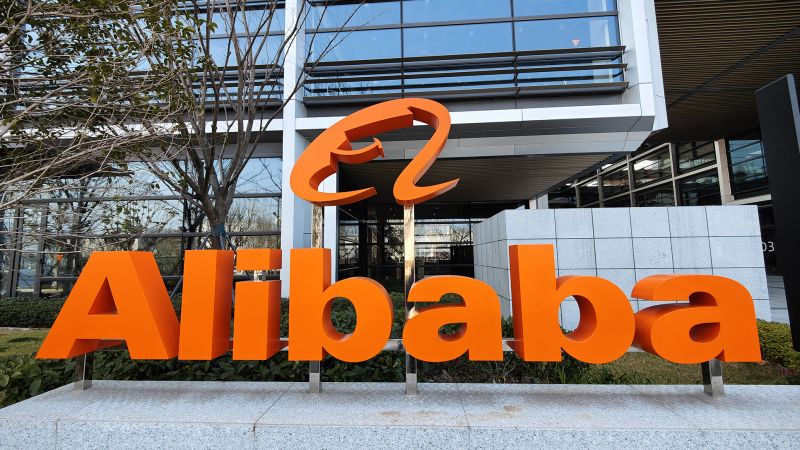In a recent announcement, Alibaba, the Chinese technology behemoth, revealed its latest artificial intelligence (AI) reasoning model. This new development claims to outperform competitive models from renowned entities like OpenAI and the rising startup DeepSeek, which has stirred a considerable wave of excitement in the tech sector. Following this momentous reveal, Alibaba’s shares, traded on the Hong Kong Stock Exchange, surged by an impressive 8% in a single day. This surge also positively impacted the Hang Seng’s China Enterprises Index, which reflects the growing investor confidence in China’s technological advancements.
Interestingly, Alibaba’s announcement came just a day after another company, known as Monica, showcased its innovation: a general AI agent named Manus. Featuring capabilities such as screening résumés and constructing websites, Manus distinguishes itself from standard chatbots by generating actionable outcomes rather than just ideas. For example, it can produce comprehensive reports recommending real estate investments based on tailored criteria, indicating a significant advancement in AI functionalities.
Alibaba’s new offering, dubbed QwQ-32B, was highlighted in a public statement for its exceptional performance. The company boasted that it nearly surpassed OpenAI’s economical reasoning model, OpenAI-o1-mini, and approached the capabilities of DeepSeek’s benchmark model, DeepSeek-R1. The latter model, released earlier, had already garnered attention for its impressive reasoning abilities. Alibaba further emphasized QwQ-32B’s advancements in mathematics, coding, and general competencies, suggesting that its overall performance could rival that of DeepSeek-R1.
One noteworthy aspect of Alibaba’s new model is its design, featuring 32 billion parameters. In contrast, the DeepSeek-R1 contains 671 billion parameters. Generally, a model with fewer parameters suggests it is more compact and efficient to train, which may provide Alibaba an edge in terms of development speed and resource management.
DeepSeek made headlines earlier in the year with the release of its R1 model, heralded for its high performance at a notably reduced training cost compared to traditional Western models. This triumph has enhanced global investor trust in the capacity of Chinese companies to innovate, especially in light of the ongoing technological rivalry between the United States and China. Since January, the Hang Seng China Enterprises Index has experienced a significant upward trajectory, climbing over 30%, which indicates growing optimism around the capabilities of Chinese technology firms.
Moreover, this is not Alibaba’s first venture into AI. The company, which owns influential e-commerce platforms like Taobao and Tmall, had previously launched its ChatGPT rival, Tongyi Qianwen, back in 2023. This launch followed OpenAI’s introduction of its groundbreaking AI reasoning model. In January, Alibaba unveiled another model known as Qwen 2.5 Max, asserting that it outperformed DeepSeek’s celebrated V3 model, which had only been introduced weeks prior.
Looking ahead, Alibaba has committed to an aggressive investment strategy, pledging at least 380 billion yuan (approximately $52.4 billion) over the next three years to enhance its AI and cloud computing infrastructure. This investment is notable as it surpasses the total amount the company had spent in these areas over the past decade, showcasing its dedication to staying at the forefront of technological innovation.
In a broader context, Chinese authorities are also prioritizing support for burgeoning sectors, including artificial intelligence, humanoid robotics, and quantum technology. By increasing funding in these areas, the government aims to foster growth and development in industries that are perceived as critical to the nation’s future economic viability and global competitiveness.
In conclusion, as Alibaba and other Chinese companies push the boundaries of artificial intelligence, the implications for global markets, technology standards, and international competitiveness are significant. The advances in AI not only reflect a crucial turning point for these companies but might also reshape the landscape of technological innovation across the globe. Anna Cooban from London contributed to this coverage, shedding light on an extraordinary phase for AI and its multifaceted possibilities.



